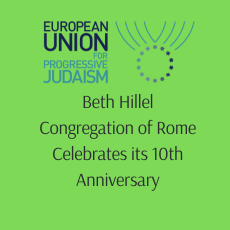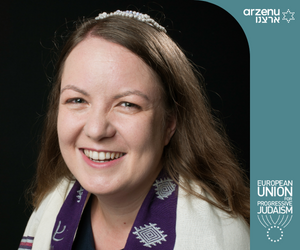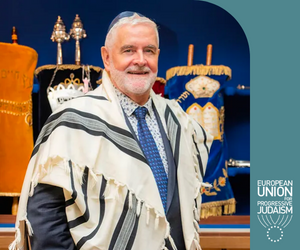How strong is Germany’s Jewish revival?
By Bill Echikson, EUPJ Brussels Director
It has been a remarkable renaissance. Over the past three decades, Germany has been home to Europe’s fastest-growing Jewish community, which now numbers some 100,000 affiliated members. Just as remarkable — as Germany celebrates 1700 years of Jewish life — is the fact that a revived German Jewry has become heterogeneous, embracing not only Orthodox but also its Progressive Jewish past.
Stiff challenges abound. Almost a third of Jewish immigrants in Germany live on social security. The community is aging. Almost half of German Jews are over 60 years old, with five members dying for each new-born.
What does the future hold? In our latest European Union for Progressive Judaism (EUPJ) webinar, I spoke with two German Jewish leaders — Rabbi Walter Homolka and Sonja Guentner — to find out. Homolka founded and is rector of the Abraham Geiger College, the first post-war rabbinical seminary in Germany. Guentner is the first continental European EUPJ chairperson.
Both agreed that the dynamic decades of German Jewish growth are behind us and the future is one of consolidation. Instead of some 120 communities across the country, they expect Jews to concentrate in the major cities — and to become increasingly diverse in how they practice their Judaism.
After the Holocaust, only about 15,000 Jews remained in Germany. Almost all German Jews who had survived remained in exile. Most post-war German Jews have displaced refugees from Eastern Europe. “They were transiting to somewhere else, but found themselves stranded in Germany,” Homolka said. “They started a family, university and up until the 1980s, they had a guilt feeling for having stayed” in Germany.
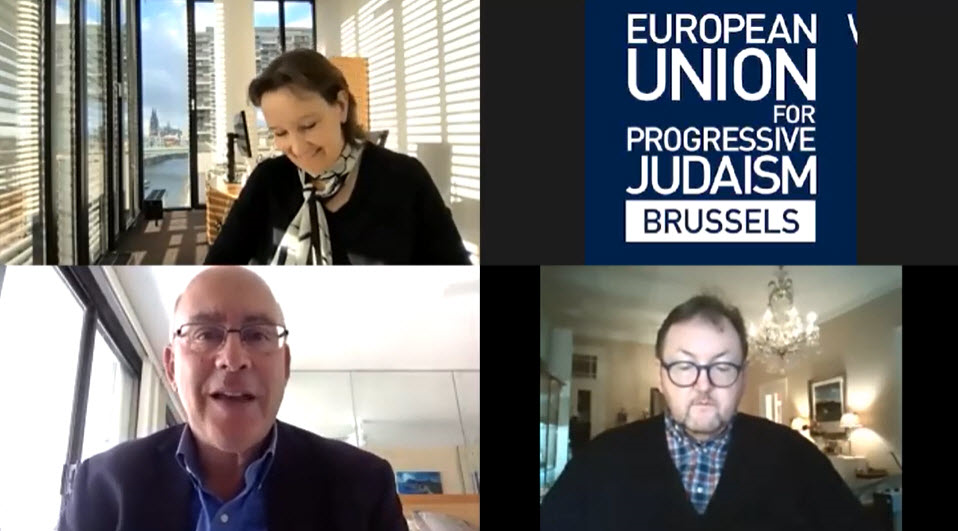
Clockwise from top: Sonja Guentner, EUPJ chair; Rabbi Walter Homolka, rector: Abraham Geiger College;
and Bill Echikson, director: EUPJ Brussels
The Central Council of Jews, established in 1950, recognised only matrilineal Jews. Heirless Jewish property was passed to the Claims Conference. As a small community, Jews felt they could not afford to split or even recognise the rich German Jewish history that had given birth to Reform Judaism in the 19th century, and finally, Orthodoxy became the religious standard.
“During my youth, I heard that you had to live a Jewish life that is for everybody, and if it is for everybody, it is Orthodox,” said Homolka, “but we don’t mind if you are non-Orthodox. So you could go to the ice-cream parlour on Friday, but no one went to services, which were Orthodox.”
When the Berlin Wall fell in 1989, 220,000 Jews from the former Soviet Union immigrated to the newly-reunified Germany, most of them of patrilineal descent. Almost overnight, new communities formed and older ones grew; community centres, schools and synagogues were built even in mid-sized cities.
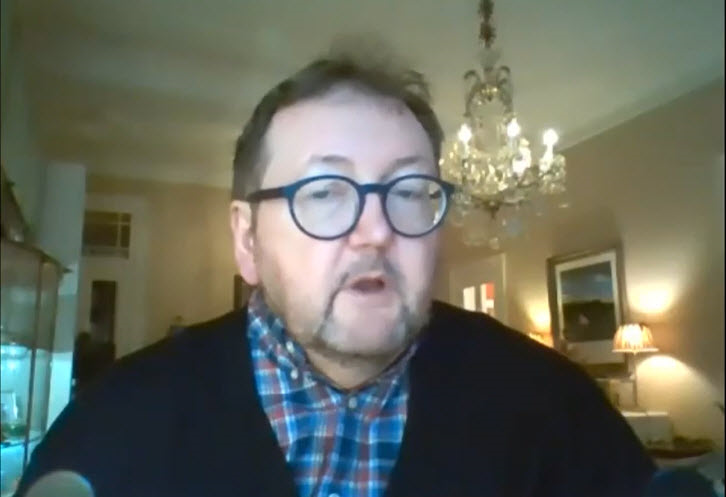
Rabbi Walter Homolka
“Had it not been for the mass immigration from the former Soviet Union in 1990, organised Jewish life would be extinct in Germany by now,” acknowledged Homolka.
But the immigrants had few connections to the German-Jewish tradition or any Jewish tradition.
“These people came to Germany from countries that had been communist, anti-religious for around 70 years where practicing Jewish religion was impossible, at least in public,” Guentner said. “They had to learn a new language, find jobs, and integrate. Judaism wasn’t necessarily their top priority.”
Progressive Judaism struggled to take root. Guentner recalled starting her community in the 1990s in Cologne “literally in peoples’ living rooms”. A British lay leader assisted. Post-millennium immigration to Germany by American and West European Jews boosted their numbers. But the Cologne Progressives could not find a permanent home. Cologne’s sole post-war synagogue was the pre-war Liberal synagogue. But it was returned to the Orthodox community, who refused to share it. “We were seen as intruders,” Guentner said.
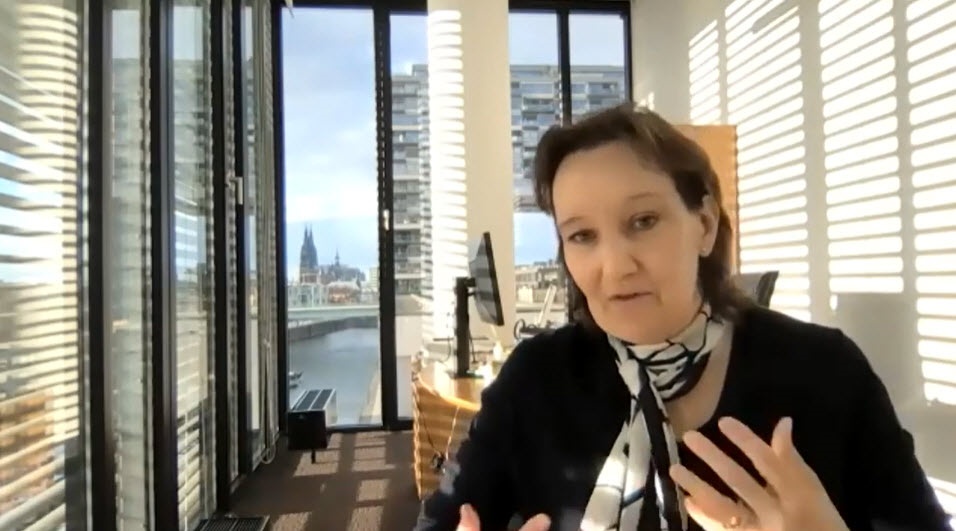
Sonja Guentner
The irony — and injustice — rankles Guentner, who led a long, and ultimately successful, legal campaign for Germany’s Progressive Jews to receive state funding. Progressive German Jews now receive state financial support, though still no access to their fair share of any remaining pre-war Jewish infrastructure, including cemeteries.
State support allowed Homolka to establish the country’s first post-war rabbinical seminary, which graduates female as well as male rabbis, and which has begun attracting students from all over the continent, east and west. This Geiger seminary soon will move into a sparkling new multi-million euro campus in Potsdam. Since its teachers are government civil servants, he said the 2008 financial meltdown and COVID crisis have not impacted its operation — unlike many other European Jewish institutions.
“We enjoy stability,” he said. “We see ourselves as a European institution and will play an eminent role within Progressive Judaism in Europe.”
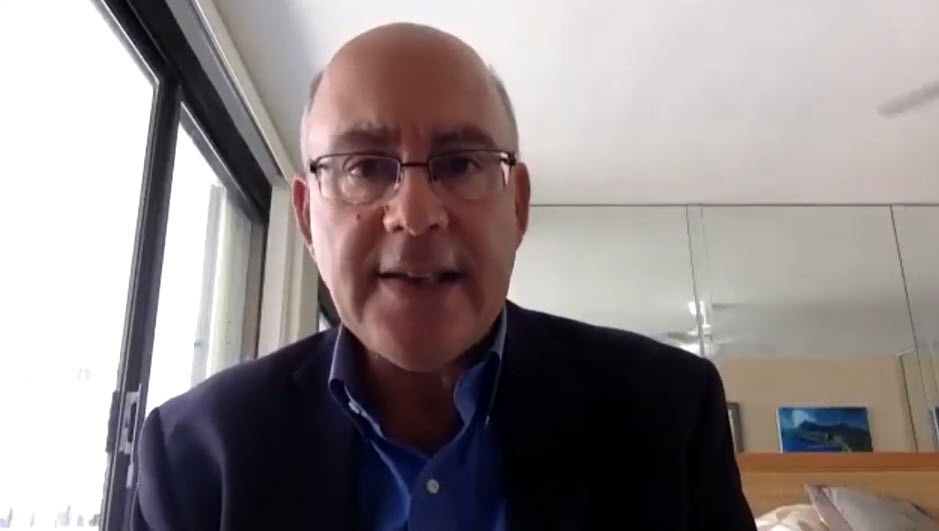
Bill Echikson
Today, Germany’s young Jews are concentrating in the country’s major cities, particularly Berlin. Israelis searching for tech jobs and rich European cultural life have arrived. In the coming years, both Guentner and Homolka expect that the overall number of German Jews will decline, with communities in small towns and cities withering, while communities in Berlin, Munich, Frankfurt, and other major cities will prosper.
Antisemitism remains a threat, both speakers acknowledge. A new police report has revealed a spike in antisemitic hate crimes, with more than 2,275 incidents in 2020. The German domestic intelligence service has placed the Alternative for Germany (AfD) party under surveillance on suspicion of posing a threat to the constitution – and Guentner said the size of its threat will be revealed in the upcoming parliamentary elections scheduled for later this year.
Jews first came to Germany with the Romans. In 321 AD, Emperor Constantine issued an edict that allowed Jews to be admitted to the city council, thereby confirming — for the first time in writing — the existence of Jewish life north of the Alps.
This year’s anniversary celebration includes kosher food-tasting sessions, puppet shows about Jewish holidays, and a Jewish cultural summer.
“Germany is where Progressive Judaism originated in response to the Enlightenment, to movements of social emancipation, and the academic study of the Jewish traditional texts,” Guentner said. “It’s great that these 1700 years of Jewish life in Germany celebrate this genuinely German contribution to Judaism.”
This article was originally published in The Times of Israel.



